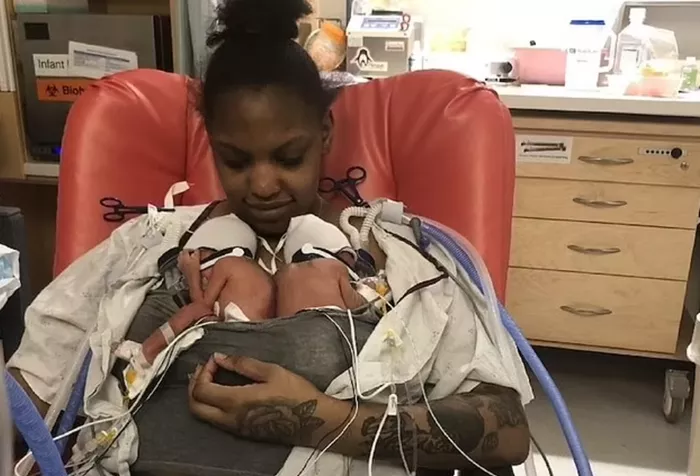Cardiovascular exercise, commonly referred to as cardio, is a popular form of physical activity that can help improve cardiovascular health, burn calories, and aid in weight loss. Many people turn to cardio as a way to shed excess weight and improve their overall health. But how much weight can you lose doing cardio? In this article, we will explore the relationship between cardio and weight loss, and discuss the factors that can impact how much weight you can expect to lose.
The Relationship Between Cardio and Weight Loss
Cardiovascular exercise is one of the most effective ways to burn calories and lose weight. When you engage in cardio, your body burns calories to fuel the activity. The more intense the activity, the more calories you burn. Over time, this calorie deficit can lead to weight loss.
The amount of weight you can expect to lose doing cardio depends on several factors, including your current weight, the intensity and duration of the exercise, and your diet. In general, the more calories you burn through exercise and the more you reduce your calorie intake through diet, the more weight you can expect to lose.
Factors That Impact Weight Loss During Cardio
Current weight: Your current weight can impact how much weight you can expect to lose doing cardio. People who are overweight or obese may lose more weight initially than those who are already at a healthy weight.
Intensity and duration of exercise: The intensity and duration of your cardio workouts can also impact how much weight you can expect to lose. Higher-intensity workouts, such as running or high-intensity interval training (HIIT), can burn more calories than lower-intensity workouts, such as walking or cycling. Longer workouts can also burn more calories than shorter workouts.
Diet: Your diet can also impact how much weight you can expect to lose doing cardio. If you are consuming more calories than you burn through exercise, you may not see significant weight loss. On the other hand, if you are consuming fewer calories than you burn, you may see more significant weight loss.
Rest and recovery: Adequate rest and recovery are also important for weight loss. Overtraining can lead to injury and burnout, which can hinder weight loss progress.
How Much Weight Can You Expect to Lose Doing Cardio?
The amount of weight you can expect to lose doing cardio depends on several factors, including your current weight, the intensity and duration of the exercise, and your diet. In general, a safe and sustainable rate of weight loss is one to two pounds per week. This equates to a calorie deficit of 500 to 1000 calories per day.
To achieve this calorie deficit, you may need to engage in cardio for at least 30 minutes per day, five days per week. Higher-intensity workouts, such as running or HIIT, may allow you to burn more calories in a shorter amount of time than lower-intensity workouts, such as walking or cycling.
It is important to note that weight loss is not solely determined by cardio. Strength training and a healthy diet are also important components of a weight loss program. Strength training can help build muscle, which can increase your metabolism and help you burn more calories at rest. A healthy diet that is rich in whole, nutrient-dense foods can help you reduce your calorie intake and improve your overall health.
Benefits of Cardio for Weight Loss
Cardiovascular exercise has several benefits for weight loss, including:
Increased calorie burn: Cardio burns calories, which can help create a calorie deficit and lead to weight loss.
Improved cardiovascular health: Cardiovascular exercise can improve heart health, which can help reduce the risk of heart disease and other chronic conditions.
Improved mood: Cardio can release endorphins, which can improve mood and reduce stress.
Increased energy: Regular cardio exercise can increase energy levels and improve overall fitness, which can make it easier to engage in other physical activities and burn more calories.
Improved sleep: Regular cardio exercise can improve sleep quality and duration, which can help support weight loss efforts.
Tips for Effective Cardio Workouts
To maximize the weight loss benefits of cardio, it is important to engage in effective workouts. Here are some tips for effective cardio workouts:
Start slow: If you are new to cardio, start slow and gradually increase the intensity and duration of your workouts.
Mix it up: Vary your cardio workouts to prevent boredom and challenge your body. Try different types of cardio, such as running, cycling, or swimming, and vary the intensity and duration of your workouts.
Use interval training: High-intensity interval training (HIIT) can be an effective way to burn more calories in a shorter amount of time. Try incorporating intervals of high-intensity exercise into your cardio workouts.
Incorporate strength training: Strength training can help build muscle, which can increase your metabolism and help you burn more calories at rest. Try incorporating strength training exercises into your cardio workouts.
Stay hydrated: Drink plenty of water before, during, and after your cardio workouts to stay hydrated and support performance.
Conclusion
Cardiovascular exercise is an effective way to burn calories and aid in weight loss. The amount of weight you can expect to lose doing cardio depends on several factors, including your current weight, the intensity and duration of the exercise, and your diet. A safe and sustainable rate of weight loss is one to two pounds per week, which can be achieved through a combination of cardio, strength training, and a healthy diet. If you are looking to lose weight through cardio, it is important to speak with your healthcare provider to determine the best course of action for your individual needs and goals.
[inline_related_posts title=”You Might Be Interested In” title_align=”left” style=”list” number=”6″ align=”none” ids=”4927,4885,4891″ by=”categories” orderby=”rand” order=”DESC” hide_thumb=”no” thumb_right=”no” views=”no” date=”yes” grid_columns=”2″ post_type=”” tax=””]

































